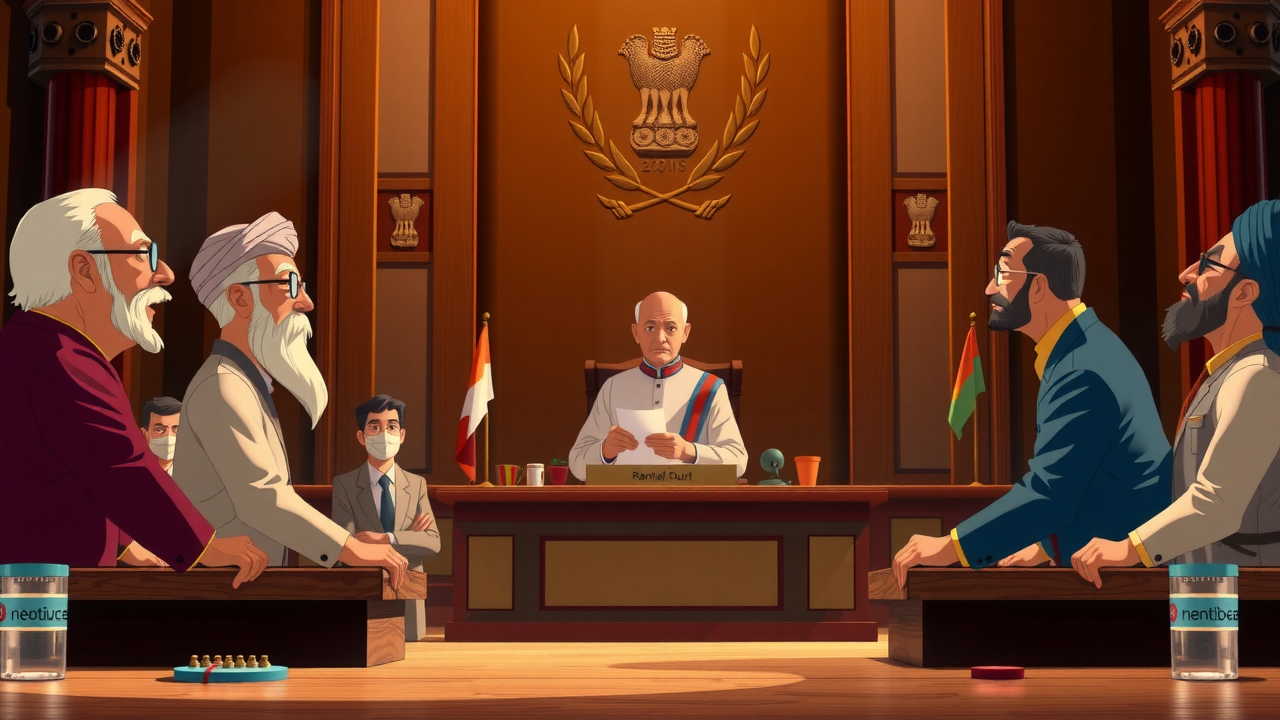In Ramlal, Motilal, and Chhotelal v. Rewa Coalfields Ltd., the Supreme Court clarified that under Section 5 of the Limitation Act, a party seeking condonation of delay must only explain the delay that occurred after the last day of the prescribed period, not their entire conduct during the limitatio

“While condoning the delay, the party may be asked to explain the delay only between the last day of the prescribed period and the delay made thereafter, and not the whole of the limitation period.”
Citation: AIR 1962 SC 361
Date of Judgment: 4th May, 1961
Court: Supreme Court of India
Bench: P.B. Gajendragadkar (J), K.N. Wanchoo (J)
Facts
- The respondent, Rewa Coalfields Ltd, sold 3,307 tons of coal to the appellant, Ramlal, Motilal, and Chhotelal, between January 1952 and March 1953. The total price for the coal was Rs. 48,158-4-0.
- The appellants, a partnership firm, failed to pay the full amount. The respondent filed a suit in the District Court seeking recovery of Rs. 52,514-14-0, which included interest accrued on the principal amount.
- The appellants contested the claim, asserting that they had already made payments for a significant portion of the coal purchased and were only liable to pay Rs. 7,496-11-0, which they expressed their readiness to pay.
- The trial court granted the appellants an adjournment to present additional evidence but imposed a condition that they pay Rs. 200 as costs to the respondent. However, the appellants neither appeared on the adjourned date nor paid the costs. Consequently, the court proceeded ex parte and passed a decree in favor of the respondent for Rs. 52,535-7-0, along with interest.
Decision of the Trial Court
The trial court proceeded ex parte as the appellants failed to appear or pay the required costs. The court ruled in favor of the respondent based on the evidence provided, granting a decree for Rs. 52,535-7-0, along with interest from October 6, 1953, until the date of payment.
Decision of the High Court
The appellants filed an application for condonation of delay under Section 5 of the Limitation Act, citing the illness of Ramlal, one of the partners, as the reason for the delay of one day in filing the appeal. The High Court rejected the appeal, reasoning that the appellants had not shown due diligence during the limitation period, even though Ramlal’s illness on the final day could be considered a sufficient cause for the one-day delay.
The High Court found that the appellants had procrastinated and lacked diligence throughout the limitation period, leading to the rejection of the condonation application.
Decision of the Supreme Court
The Supreme Court held that under Section 5 of the Limitation Act, a party seeking condonation of delay is required to explain only the delay that occurred after the expiration of the prescribed limitation period, not their conduct during the entire limitation period.
The Court emphasized the importance of balancing procedural rules with the need for justice, noting that minor delays caused by genuine reasons, such as illness, should be condoned to ensure a fair trial. The Judicial Commissioner was found to have erred in focusing on the entire limitation period rather than the specific delay in question.
Key legal issues discussed
1. Whether the appellants were required to explain their conduct during the entire limitation period to seek condonation of the delay under Section 5 of the Limitation Act?
No
The Court clarified that under Section 5 of the Limitation Act, the appellants were not required to explain their conduct during the entire limitation period. They only needed to explain the delay that occurred after the last day of the limitation period. The Court interpreted the phrase “within such period” as referring to the period of delay beyond the prescribed limitation period, rather than the entire limitation period.
The Court’s reasoning reflected its focus on fairness and justice rather than procedural rigidity. The focus was on the delay beyond the limitation period, allowing the appellants the opportunity to explain the genuine cause for the delay—thus ensuring a fair trial.
The Court highlighted that Section 5 exists to balance procedural rules with the needs of justice, and should not be used to shut the doors on litigants who, due to minor delays, lose the opportunity to have their case heard. The provision acts as a safeguard for individuals who may face unforeseen circumstances and helps to prevent injustice due to strict adherence to procedural deadlines.
The court referred to Karalicharan Sarma v. Apurbakrishna Bajpeyi[1] wherein the judgment discussed the view that it is sufficient if the appellant shows sufficient cause for not filing the appeal on the last day of the limitation period without needing to explain their conduct throughout the entire period.
The court noted in para number 8 that, “It would not be reasonable to require a party to take the necessary action on the very first day after the cause of action accrues. In view of the period of limitation prescribed the party would be entitled to take its time and to file the appeal on any day during the said period; and so, prima facie it appears unreasonable that when delay has been made by the party in filing the appeal it should be called upon to explain its conduct during the whole of the period of limitation prescribed.”
The Court emphasized that the focus of inquiry under Section 5 should be on the reasons for the delay that occurred after the expiration of the limitation period, not on the appellant’s actions during the entire limitation period. The Court ruled that the appellants were justified in filing their appeal on the last day of the limitation period, and their only responsibility was to explain the one-day delay caused by Ramlal’s illness.
2. Whether the Judicial Commissioner erred in dismissing the appeal on the grounds of lack of diligence during the entire period of limitation?
Yes
The Supreme Court held that the Judicial Commissioner erred in dismissing the appeal based on the appellants’ alleged lack of diligence throughout the entire limitation period. The Judicial Commissioner had wrongly interpreted Section 5 to require that the appellants justify their conduct during the entire limitation period. However, the Supreme Court clarified that the inquiry should be confined to the delay beyond the last day of the limitation period.
The Court referred to Kedarnath v. Zumberlal[2] which was to illustrate the Judicial Commissioner’s view that delaying the filing of an appeal until the last day indicates negligence, and hence, the delay should not be condoned.
The court held in para number 8 that “We would accordingly hold that the learned Judicial Commissioner was in error in taking the view that the failure of the appellant to account for its non-diligence during the whole of the period of limitation prescribed for the appeal necessarily disqualified it from praying for the condonation of delay, even though the delay in question was only for one day; and that too was caused by the party’s illness.“
The Court held that the Judicial Commissioner’s focus on the entire limitation period was misplaced. The key issue was the one-day delay caused by Ramlal’s illness, which was satisfactorily explained. The Supreme Court concluded that the Judicial Commissioner had failed to properly apply the principles governing the interpretation of Section 5.
3. Whether the Judicial Commissioner properly exercised his ‘discretion’ under Section 5 of the Limitation Act?
No
The Supreme Court found that the Judicial Commissioner did not properly exercise his discretion under Section 5 of the Limitation Act. The Judicial Commissioner focused unduly on the entire limitation period and did not give proper weight to the specific reasons for the delay beyond the limitation period. The Supreme Court reiterated that once sufficient cause for the delay is shown, the Court should exercise its discretion in favor of condonation, especially when the delay is minimal and the reasons for the delay are valid.
The court held in para number 8 of this judgment that “In our opinion, it would be immaterial and even irrelevant to invoke general considerations of diligence of parties in construing the words of Section 5. The context seems to suggest that ‘within such period’ means within the period which ends with the last day of limitation prescribed.”
The Supreme Court’s interpretation stressed that the s approach was overly rigid and contrary to the purpose of Section 5, which is to allow for flexibility in cases where minor delays are caused by genuine circumstances. The Judicial Commissioner’s refusal to condone the delay was found to be erroneous, particularly given the strong evidence supporting the appellants’ claim that the delay was caused by illness.
[1] (1931) ILR 58 Cal 549.
[2] AIR 1916 Nag 39.



